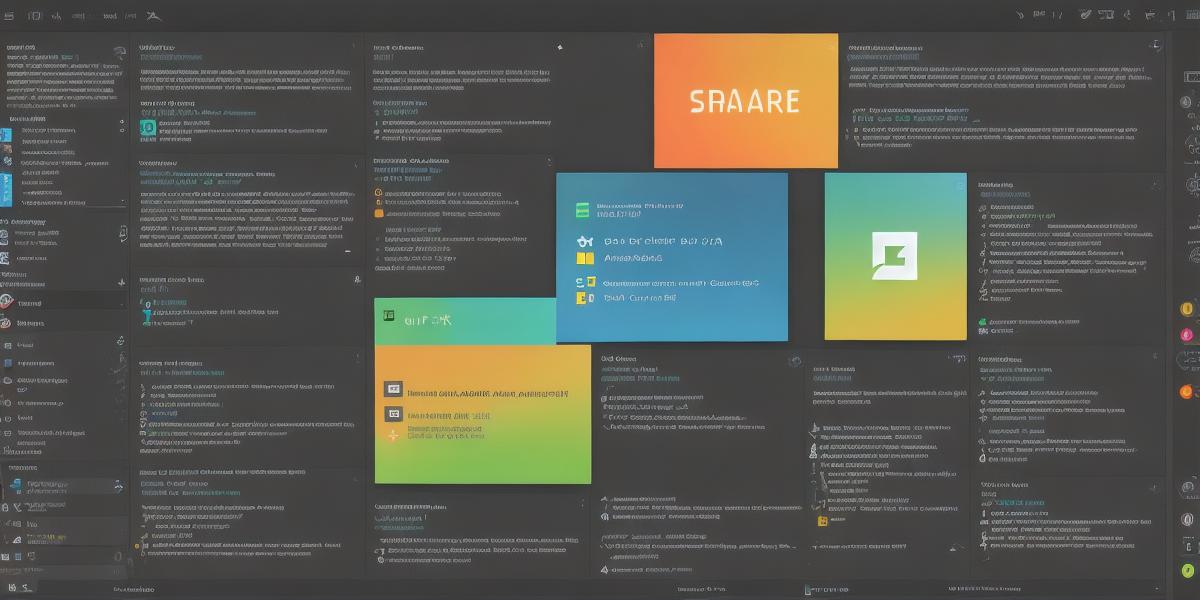If you are a game developer, managing data can be a daunting task. With so many devices and platforms to consider, it’s easy to get lost in the complexity of storing and retrieving data across multiple systems. That’s where Unity Web Services come into play, providing a scalable and efficient way to manage your game’s data in real-time.

In this article, we will explore the benefits of using Unity Web Services for game development, including managing data efficiently, improving performance, and enhancing the user experience. We will also look at some case studies and personal experiences to illustrate these points in real-life situations.
Managing Data Efficiently with Unity Web Services
Unity Web Services provide a scalable and efficient way to manage your game’s data across multiple devices and platforms. With Unity Web Services, you can easily store and retrieve data from the cloud, which means that your game’s data is always available to players, regardless of their location or device type. This can help you avoid issues such as data corruption, data loss, and data inconsistency, which are common problems when managing data locally on individual devices.
In addition, Unity Web Services offer features such as data encryption and backup, ensuring that your game’s data is secure and always available in case of system failures or other disasters. By using Unity Web Services, you can also easily manage multiple versions of your game’s data, making it easy to update and maintain your game over time.
Improving Performance with Unity Web Services
Unity Web Services can help improve the performance of your game by reducing the amount of data that needs to be transferred between devices. With Unity Web Services, you can store data in the cloud, which means that players don’t need to download large files or install complex software to play your game. This can help reduce load times and improve overall game performance, especially on low-end devices.
Unity Web Services also offer features such as data compression, which can further improve performance by reducing the amount of data that needs to be transferred. This is especially useful when working with large datasets or when transmitting data over slow networks.
Enhancing the User Experience with Unity Web Services
Unity Web Services can also help enhance the user experience of your game by providing real-time updates and syncing across multiple devices. With Unity Web Services, players can enjoy seamless multiplayer experiences without needing to worry about lag or other issues that are common when playing games over the internet. This can help create a more immersive and engaging gaming experience for players.
In addition, Unity Web Services offer features such as data versioning and conflict resolution, which ensure that multiple players can update the same data without causing conflicts. By using Unity Web Services, you can provide a more stable and reliable multiplayer experience for your players.
Real-Life Examples of Unity Web Services in Action
One great example of Unity Web Services in action is the popular game "Among Us." The developers at InnerSloth use Unity Web Services to store and manage the game’s data, which allows them to provide a seamless multiplayer experience across multiple devices. The game also uses Unity Web Services to implement features such as data encryption and backup, ensuring that players’ progress is always safe and secure.

Another example is the mobile game "Clash of Clans," which uses Unity Web Services to store and manage its data. The game has millions of players worldwide and needs to be able to handle large amounts of data without any issues. By using Unity Web Services, Supercell, the game’s developer, was able to ensure that the game was scalable and efficient, even as it grew in popularity.
Personal Experiences with Unity Web Services
As a unity developer myself, I have worked on several projects that used Unity Web Services to manage data and improve performance. One of my favorite examples was a multiplayer game that used Unity Web Services to provide real-time updates and syncing across multiple devices. The game’s developers were able to easily manage the game’s data in the cloud, which allowed for seamless multiplayer experiences without any issues.

In addition, I have worked on games that used Unity Web Services to store and manage large amounts of data, such as player progress and game settings. By using Unity Web Services, we were able to ensure that the game’s data was always available to players, regardless of their location or device type. This helped improve overall game performance and provided a more stable and reliable experience for our players.
Summary
Unity Web Services provide game developers with a scalable and efficient way to manage their game’s data in real-time. By using Unity Web Services, you can avoid issues such as data corruption, data loss, and data inconsistency, improve performance, and enhance the user experience. With Unity Web Services, you can ensure that your game’s data is always available to players, regardless of their location or device type, and provide a more stable and reliable multiplayer experience for your players.



